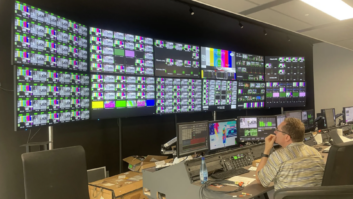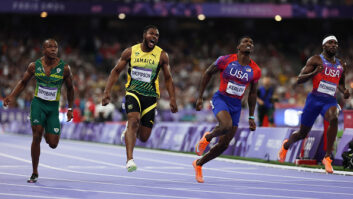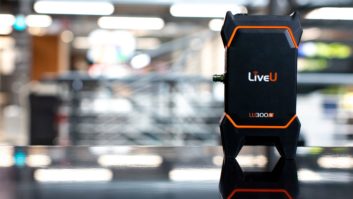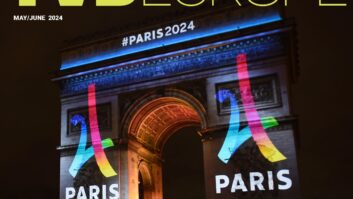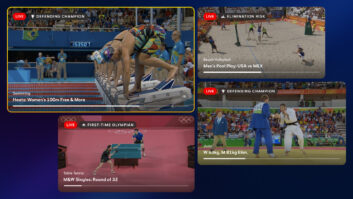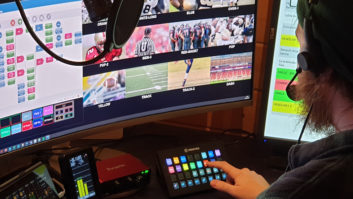Germany’s Westdeutscher Rundfunk (WDR) implemented a Riedel backbone for communications and signal distribution for ARD’s broadcast of this summer’s UEFA European Football Championship 2024.
In collaboration with Broadcast Solutions and Riedel’s Managed Technology Division, the media and intercom infrastructure at WDR’s Broadcast Centre Cologne (BCC) was temporarily expanded to enable remote production for linear TV, radio, online, and social media.
WDR employed a centralised remote production from its Cologne location, with all UEFA feeds centrally organised via the German public broadcaster’s control room in Mainz, decoded, and sent directly to Cologne over fibre.

Signals from up to six unilateral cameras with embedded audio were transmitted from each stadium to Cologne, where they converged in a dispatcher room used by production, editorial, and technical staff, and were distributed throughout the Cologne campus.
In order to process the high number of additional signals, the WDR infrastructure was temporarily expanded by 17 MediorNet MicroN UHD nodes. Ten of the nodes were equipped with the Standard App to sync the unsynchronised UEFA feeds to the house clock and enable flexible distribution of video and audio signals, said Riedel. The remaining seven nodes used the MultiViewer App for scalable multiviewing capacities. The orchestration layer, hi human interface from Broadcast Solutions, was chosen to control and configure the infrastructure.
“Through their Ü3 OB van, our partners at WDR were already familiar with the powerful combination of MediorNet and hi human interface,” said Humphrey Hoch, product manager, Broadcast Solutions. “With a total of 29 hardware panels and software licenses, WDR was able to have flexible access to the hi system — from the BBC in Cologne to the German Quarter in Herzogenaurach.”
